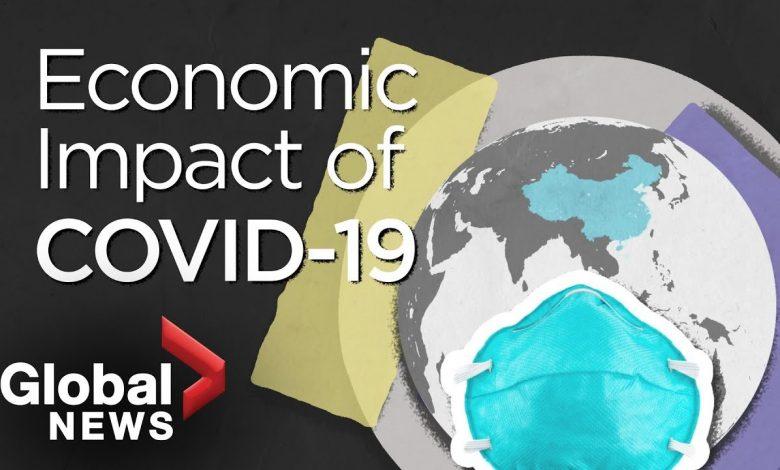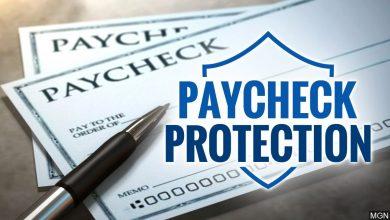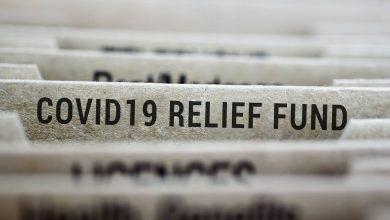Why Economic Stimulus Checks, Aid To Small Businesses, And Reopening Are Not Enough To Rescue The United States Economy

The coronavirus pandemic spread through the American economy at an incredibly fast rate, so fast that it has been difficult for economists and public policy experts to understand what exactly is going on. Despite the fact that official data is often outdated, a group of researchers gathered information and data from private companies that have allowed them to decipher what is happening to the economy in real time. The data they collected shows the economic collapse has been disproportionately fueled by the actions of high-income Americans, whose consumer spending has plummeted more than that of the poorest Americans, devastating low-income workers and small businesses located in wealthy neighborhoods. Brooklyn Heights is located across the East River in lower Manhattan. The houses are made of reddish stone and belong to people with a high purchasing power.
Today the Place is a Ghost Town
Restaurants, Pilates studios and neighborhood bars are closed or have few customers. Rich people have stopped going out, causing the destruction of millions of jobs. That is the key to the study by a group of economists led by Raj Chetty of Harvard University. Chetty and his colleagues are constantly meeting to process the massive data they present regularly at conferences and debate on inequality and opportunity. This new study focuses on the economic impact that COVID-19 is leaving and on the response that the government has had. Chetty is the star, he’s kind of like the Michael Jordan of political politics analysis. The data collected comes from large private companies, as well as credit and debit cards. The analyzed datasets is now freely available and updated in real time. The study is so important that it is a bomb and represents an advance for economic science.
Here’s Why
Consumer spending: Recessions are driven by a drop in spending on durable goods like cars, refrigerators, or computers, but this time things are different. The economic crisis is being fueled by a decrease in spending in restaurants, bars, hotels, and other service establishments that require consumers to be in contact with someone else. What the team shows in their study of the data is that the drop in spending, especially in spending in wealthy neighborhoods, businesses saw a drop of up to 70% in revenue. That compares to a 30% drop in business income in the poorest neighborhoods.
The jobs: Chetty and his colleagues found that the 70% drop in income in wealthy neighborhoods led those businesses to lay off nearly 70% of their employees, most of whom are low-wage workers. Businesses located in the poorest neighborhoods only managed to fire about 30% of their staff. The result, Chetty said, “is that reductions in spending for the wealthy have led to job losses, especially for low-income people working in wealthy areas.”
What about Government Efforts: The group of investigators found that the government has largely failed. Investigators argue that the $ 500 billion Paycheck Protection Program (PPP), which made forgivable loans to companies with fewer than 500 employees, doesn’t appear to be doing much to save jobs. Comparing employment trends, they found that the smallest businesses that are eligible for PPP do not see relative momentum after the program went into effect.
It seems that the program did not do its job. For their part, the so-called economic stimulus checks, although they increased spending, did not have much of a stimulating effect on the economy because the spending was mainly destined for large companies like Amazon and Walmart. Support money did not flow to businesses in wealthy neighborhoods, which are the personal service companies most affected by the crisis that triggered the coronavirus pandemic. Overall, the federal rescue package has failed to rescue the businesses and jobs most affected by the pandemic.
The IRS tax notice involving thousands of dollars for taxpayers
The Internal Revenue Service (IRS) reported that it accumulates $ 1.5 billion in unclaimed tax refunds corresponding to 2016 tax returns. In a statement on its website Wednesday, the agency estimated that about 1.4 million taxpayers could claim the money. “The IRS wants to help taxpayers who are owed refunds, but have not yet filed their 2016 returns,” said Chuck Rettig, IRS Commissioner. “Time is quickly running out for these taxpayers. There is only a three-year window to claim these refunds and the window closes on July 15. To claim this refund, a 2016 tax return must be filed by July 15, 2020.”
To receive the 2016 tax year refunds, these taxpayers must file their 2016 returns with the IRS by the tax deadline of July 15, 2020. This year the period was extended to that date due to the coronavirus emergency. According to the IRS notice, the average amount of money that would be distributed in potential overdue refunds is $ 861. If taxpayers fail to complete the procedure within the stipulated period, the money becomes the property of the United States Department of the Treasury. The IRS does not impose penalties for filing taxes late if it involves a refund. But not everything is as positive as it reads. The office made some clarifications on the scope of the funds.
Three important details about refunds
1. Taxpayers claiming the 2016 tax refund should know that their checks can be withheld if they have not filed tax returns for 2017 and 2018.
2. The refund could be applied to any amount owed to the IRS or a state tax agency.
3. It can also be used to offset unpaid child support or past due federal debts, such as student loans.
The IRS released a list by state that specifies the amount of refund owed to taxpayers. Here you can verify the information that applies to each of the demarcations, as well as other information from the statement from the tax collection office.





